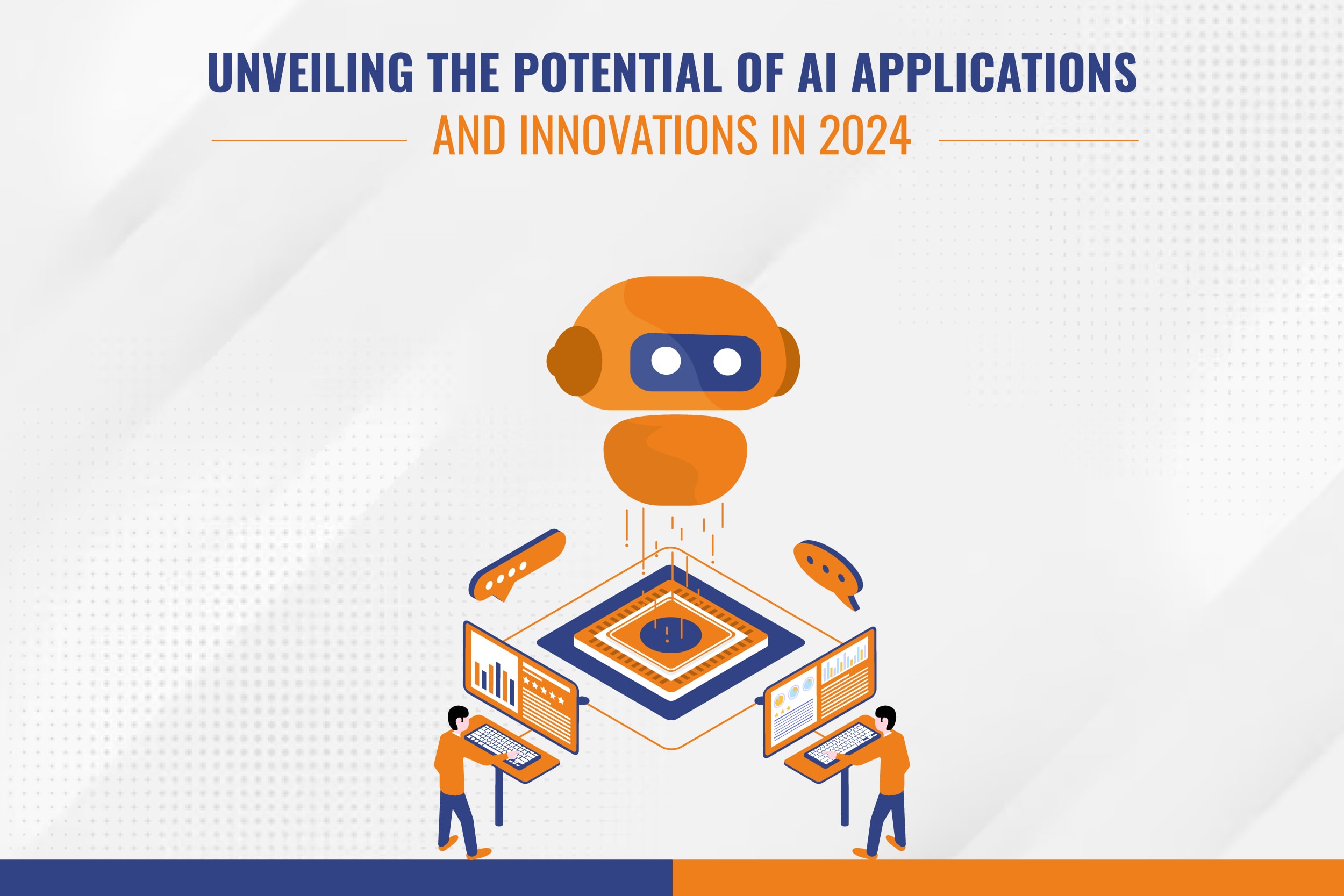
Unveiling the Potential of AI Applications and Innovations in 2024
Artificial Intelligence (AI) has emerged as a transformative force across various sectors, revolutionizing industries, and reshaping the way we live and work. In 2024, AI continues to evolve rapidly, unveiling unprecedented potential through innovative applications and cutting-edge technologies. This article explores the diverse landscape of AI applications and innovations in 2024, focusing on its impact on technical training courses, programs, and corporate environments.
In recent years, AI has transitioned from a theoretical concept to a practical tool driving real-world solutions. Its applications span a wide range of domains, including healthcare, finance, manufacturing, transportation, and education. As we delve into 2024, AI's influence permeates deeper into society, offering promising opportunities for advancement and growth.
The Evolution of AI
AI has undergone a remarkable evolution, propelled by advancements in machine learning, deep learning, natural language processing (NLP), and computer vision. In 2024, AI systems boast enhanced capabilities in understanding complex data patterns, making informed decisions, and even simulating human-like reasoning.
Applications of AI in Technical Training Courses
Technical training courses play a pivotal role in equipping individuals with the skills and knowledge required to thrive in a rapidly changing technological landscape. AI is revolutionizing technical training by offering personalized learning experiences, adaptive assessments, and immersive simulations.
Personalized Learning
AI algorithms analyze learners' strengths, weaknesses, and preferences to tailor course content and delivery methods. This personalized approach enhances engagement and retention, ensuring that individuals grasp concepts more effectively.
Adaptive Assessments
Traditional assessments are being replaced by AI-powered adaptive assessments that dynamically adjust difficulty based on learners' performance. This ensures that assessments accurately reflect individuals' proficiency levels, providing actionable insights for improvement.
Immersive Simulations
AI-driven simulations simulate real-world scenarios, allowing learners to apply theoretical knowledge in practical contexts. These immersive experiences facilitate hands-on learning, fostering skill development and problem-solving abilities.
Corporate Technical Training Programs
In the corporate world, staying abreast of technological advancements is essential for maintaining a competitive edge. AI is reshaping corporate technical training by streamlining onboarding processes, upskilling employees, and fostering a culture of continuous learning.
Onboarding Automation
AI-powered chatbots and virtual assistants automate the onboarding process, guiding new employees through company policies, procedures, and training modules. This reduces administrative burden and accelerates the integration of new hires into the organization.
Upskilling and Reskilling
As job roles evolve in response to technological shifts, organizations rely on AI-driven training programs to upskill and reskill their workforce. These programs identify skill gaps, recommend relevant courses, and track progress to ensure employees remain competitive and adaptable.
Data-Driven Insights
AI analytics platforms analyze training data to provide actionable insights into employee performance, engagement, and learning outcomes. This enables organizations to optimize training programs, allocate resources effectively, and measure return on investment.
Innovations in AI-Powered Learning Platforms
In 2024, AI-powered learning platforms continue to push the boundaries of innovation, leveraging advanced algorithms and interactive interfaces to deliver immersive educational experiences.
Natural Language Processing (NLP)
NLP enables conversational interfaces that facilitate seamless interaction between learners and virtual tutors. These AI-powered chatbots respond to queries, provide explanations, and offer personalized recommendations, enhancing the learning journey.
Augmented Reality (AR) and Virtual Reality (VR)
AR and VR technologies create immersive learning environments where learners can visualize abstract concepts, manipulate virtual objects, and engage in hands-on activities. These immersive experiences deepen understanding and retention, particularly in technical fields.
Blockchain-Based Credentials
Blockchain technology ensures the integrity and security of credentials by providing a tamper-proof record of achievements and certifications. AI algorithms can verify credentials instantly, reducing administrative overhead and mitigating the risk of credential fraud.
Challenges and Considerations
Despite its transformative potential, AI implementation in technical training programs and corporate environments is not without challenges. Concerns regarding data privacy, algorithmic bias, and ethical considerations must be addressed to ensure responsible AI deployment.
Data Privacy and Security
AI relies on vast amounts of data to train algorithms and make informed decisions. Ensuring data privacy and security is paramount to prevent unauthorized access, breaches, and misuse of sensitive information.
Algorithmic Bias
AI algorithms may inadvertently perpetuate bias and discrimination present in training data. Mitigating algorithmic bias requires careful data curation, algorithmic transparency, and ongoing monitoring to identify and address biases as they arise.
Ethical Considerations
The ethical implications of AI in corporate technical training must be carefully examined. Transparency, accountability, and fairness should guide AI deployment to ensure equitable outcomes for all stakeholders.
Final Words
In 2024, AI continues to redefine the landscape of corporate technical training courses and programs, unveiling unprecedented potential for innovation and growth. By harnessing AI-driven solutions, organizations can empower individuals with the skills and knowledge needed to thrive in an increasingly digital world.
However, addressing challenges related to data privacy, algorithmic bias, and ethical considerations is essential to ensure responsible AI deployment and foster a future where AI benefits society. As we navigate the evolving terrain of AI, embracing its potential while remaining vigilant to its implications will be key to shaping a brighter, more inclusive future.
